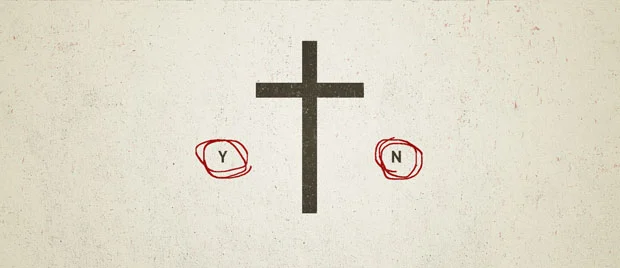The Doctrine the Church Can’t Live Without

I know it is summer time, but here is a quiz. It’s only one question and it’s fill in the blank. Ready? Christology is by nature bound up with the doctrine of _________ ?
This sentence comes from lectures given by Dietrich Bonhoeffer at the University of Berlin in 1932. After that year, the Nazis would rise to power in Germany. Bonhoeffer would lose his license to teach and eventually become the director of one of five underground seminaries to serve the Confessing Church—a church that rose up against the German Lutheran Church, which had embraced and endorsed the Nazi party.
Now back to the quiz. Here’s Bonhoeffer’s answer: “Christology is by nature bound up with the doctrine of justification.” This sentence comes from his lectures on twentieth-century systematic theology. He began the last lecture, which he titled, “Preaching,” with a simple but urgent and ultimate question, “What should we preach?” We must preach Christ, he declares. Preaching Christ means nothing other than preaching the gospel. Preaching the gospel means, and only can mean, preaching the doctrine of justification.
Pulling a page from Luther’s playbook, Bonhoeffer speaks of how the cross is God’s “No” to humanity and to any attempt to achieve salvation, to attain righteousness. The cross slams the door on any and all attempts to merit salvation, to merit God’s grace. The cross is also simultaneously God’s “Yes” to us. Through His active and passive obedience, Christ has achieved for us what we could not. Christ died for the penalty of sin, enduring God’s wrath. Christ fully kept the law as the perfectly obedient Son. At the cross, Christ both undid what Adam had done and did what Adam could not do. “This is the reason,” Bonhoeffer says, “for the cross.” We have no hope without it.
Preaching the gospel means, and only can mean, preaching the doctrine of justification.
In his discussion of justification, Bonhoeffer goes on to address the “alien righteousness” of Christ. This is one of the key concepts of the Reformers and of their protest against Rome. We are passive; God acts upon us. Even our act of faith is, in the words of Bonhoeffer, “the expression of the most profound human passivity.” We are justified, declared righteous before God, because of Christ’s righteousness imputed to us. It is outside of us, alien from us. The Latin expression is extra nos.
Why is Bonhoeffer stressing justification, imputation, and alien righteousness in his lectures? Because, while it was so central to Luther in the sixteenth century, the Lutheran church of the twentieth century had let the doctrine go by the wayside. The church had sold its birthright. We should not wonder at this. The doctrine of alien righteousness is offensive to human nature. It tells us we are unable to do something, that we lack capacity and ability. It tells us more. It tells us we are sinful and deserving of nothing but God's wrath (Eph. 2:1-3). That was not a popular message in twentieth century Germany.
It’s not a popular message today, either. Even those who profess to be evangelicals have expressed an unease with historic formulations of the doctrine of justification. Some have outright rejected it.
At the end of Bonhoeffer’s lectures he left his students with one last statement: “Who will show us Luther!”
We can put the same question to the twenty-first century evangelical church. Luther saw justification as the centerpiece to the whole Reformation enterprise. It is the doctrine the church can’t live without.
Editor’s Note: This article was originally published July 5,2013.

